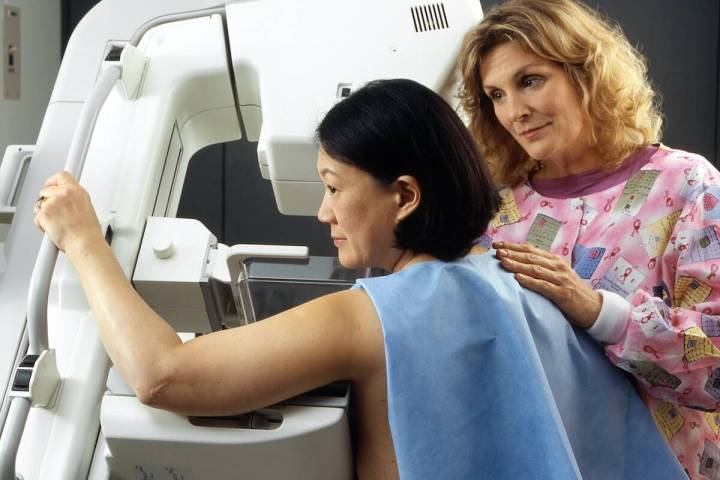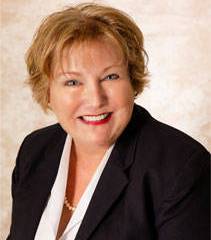
For those who think that adulthood means never having to get vaccinated, think again.
There are a slew of shots that adults need to take, even though childhood has long passed.
Flu. Shingles. Pneumonia. Tetanus.
Immunizations, says Dr. Joe Iser, chief medical officer of the Southern Nevada Health District, are the best defense against infectious diseases.
“It’s a common misconception among adults that they don’t need shots,” he said.
For businesses, whether employees get shots isn’t just a health decision, it’s a bottom-line decision. It can be a matter of losing employees from the workplace for days, cutting into productivity and trimming revenue.
And Las Vegas, as everyone will tell you, is special. It’s a tourist magnet. To health officials, that translates into infectious bugs from all over the world. More than 41 million people visited Las Vegas in 2014.
“People who don’t think they’re at risk, these diseases are one airplane ride away,” said Rhonda Baskins, the nurse who is adult immunizations coordinator for Immunize Nevada. “Your chances of getting the flu are a lot greater than getting Ebola.”
The economic impact of the flu nationwide is $87 billion a year, according to the Centers for Disease Control and Prevention in Atlanta. Businesses lose nearly 111 million workdays each flu season, which amounts to $7 billion per year in sick days and lost productivity.
From 2009 through 2013, 7,250 residents came down with the flu in Clark County, according to the Southern Nevada Health District.
The flu bug is looming. Flu season peaks in Nevada in February and March. But shots are available now. It’s hard to pass by a pharmacy or health clinicwithout seeing a sign offering flu shots.
The benefits for employers whose employees to get flu shots, says the CDC, include increasing productivity, trimming absenteeism, lowering health care costs and putting a hold on flu’s negative impacts.
Here is what the CDC suggests employers can do to increase employee vaccinations:
ï· Host a vaccination clinic;
ï· Promote flu vaccination in the community;
ï· Partner with a provider or pharmacy;
ï· Share the Flu Vaccine Finder;
ï· Offer free or reduced-cost vaccines;
ï· Announce availability through newsletters, email or paycheck inserts.
“We encourage that businesses hold their own vaccine clinic,” Baskins said. “It can be extremely costly if anyone gets the flu in your employee family. There’s time off work, medical bills. Employers should encourage people not to come to work when they get the flu.”
While flu is the Godzilla of the infectious diseases, there are other shots adults should get too.
For those older than 60, for instance, there’s the Zoster vaccine, which protects against shingles. The CDC estimates that 1 million Americans get shinglesevery year. About half are 60 or older.
“Chicken pox puts the virus into your system, and it can resurface as shingles,” Baskins said. “The virus lays dormant along your nerves, and it comes out. Thirty percent of adults get it, which is a very high incidence.”
And, she added, it’s no fun.
“It’s very painful. It can cause hearing loss. Iit can be very debilitating as far as pain and you can even have long-term effects.”
Pneumococcal vaccines that help protect against pneumonia and other infections in the lungs and bloodstream are recommended for adults older than 65 and for younger adults with health conditions such as asthma and COPD. Smokers also are at risk, according to the CDC.
Older adults also should continue to get Td and Tdap vaccines, which help protect against tetanus, diphtheria and pertussis.
The biggest obstacle to getting people to get their shots is education.
“The biggest concern is the public does not know,” Baskins said. “I had an older man tell me he didn’t even know that tetanus shots should be given every 10 years, and the last one he had was 50 years ago.”
Nationwide, only 20 percent of adults who should get the shot have done so, she added. “We’ve got a lot of work to do,” she said.
The growing epidemic of diabetes in the U.S. means there are even more people who need to get shots, such as the Hepatitis series for diabetics.
And while business travel can be exciting, there are additional precautions depending on the destination.
Baskins said travelers should go to a website that will tell them what they need to be protected against. The CDC has a site called Travelers’ Health, wwwnc.cdc.gov/travel, that offers tips and travel alerts.
Said Baskins: “You might be going to an Asian country where there is a large presence of Hepatitis C and Hepatitis A.”
“We talk about Hepatitis for travelers especially,” Iser said. “When I worry about infectious diseases that aren’t prone to being eliminated or protected byvaccine overseas, it’s tuberculosis. The travel situation is important with that. People go overseas and come back with TB or come here from other countries and have active TB.”
According to Baskins, there may be other vaccinations for those weary of shots in the future.
There is ongoing research going for a vaccine for the common cold, an oral HIV vaccine, and new ways to give shots, such as a bandage that has tiny needles.
“A vaccine for the common cold would be huge. There’s a lot of stuff out there,” Baskins said.
Helpful sites:
https://www.immunizenevada.org/adults
http://www.flu.gov/planning-preparedness/business/
http://www.cdc.gov/vaccines/adults/index.html







